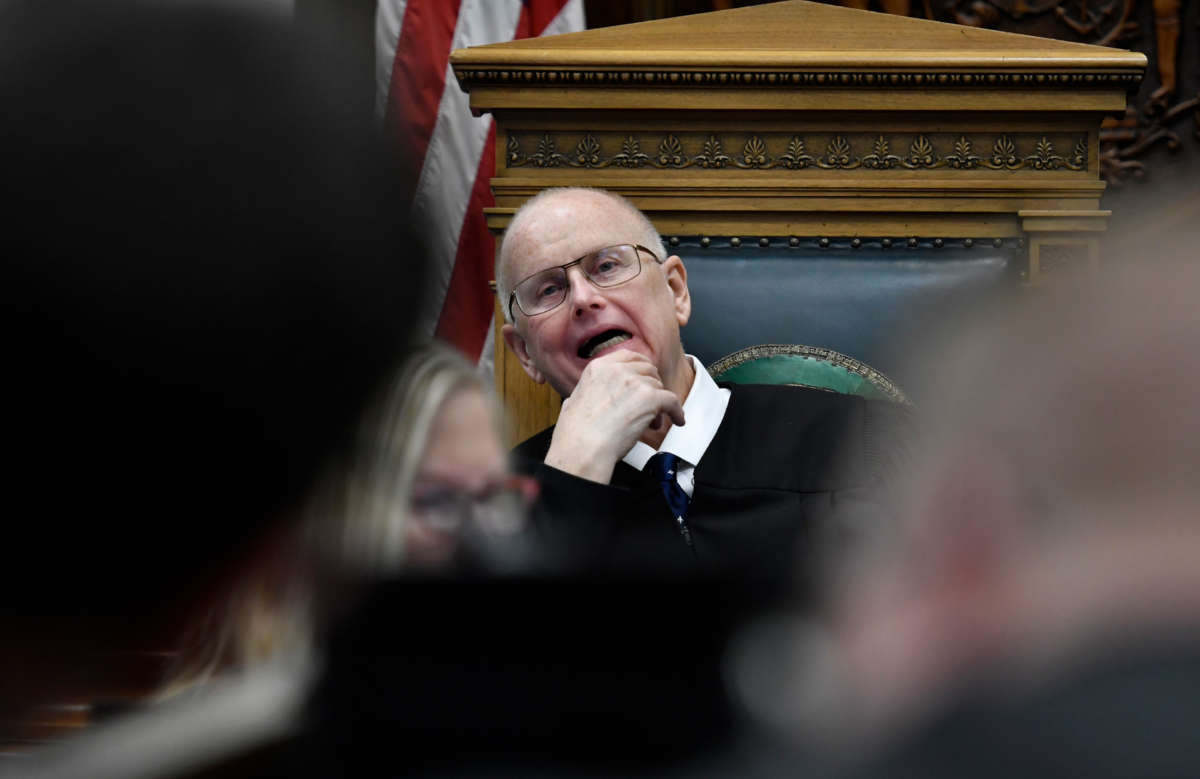Did you know that Truthout is a nonprofit and independently funded by readers like you? If you value what we do, please support our work with a donation.
The judge in the Kyle Rittenhouse murder trial has dismissed one of the six charges against Rittenhouse, ruling that he should not face a count of illegal possession of a firearm.
Rittenhouse shot three men — killing two of them and injuring the third — during an uprising against police brutality in Kenosha, Wisconsin last year. He is being charged with murder along with a number of additional charges, including the violation of a state statute barring people under the age of 18 from possessing a dangerous weapon.
Rittenhouse, who is now 18, was 17 at the time of the shootings. On the evening of August 25, 2020, he traveled from his home in Antioch, Illinois to the protests in Kenosha, carrying a military-style weapon across state lines. Wisconsin law states that minors cannot possess deadly weapons unless they are hunting wildlife.
Judge Bruce Schroeder, who is presiding over the trial, has decided to dismiss the misdemeanor weapons charge, justifying this move by saying that he has a “big problem” with the way the statute was written. This comment suggests that his dismissal of the charge is based on personal opinion, rather than any legitimate legal reasoning.
Schroeder’s decision to remove the charge took place shortly before closing arguments.
The judge said that he would have considered leaving the charge in place if the rifle Rittenhouse used in the shootings had a longer barrel length. However, Wisconsin law does not define what constitutes a “dangerous weapon” based on the length of a rifle.
The weapon Rittenhouse used to shoot the three men was obtained in what many would consider a “straw purchase” arms sale. Dominick Black, a friend of Rittenhouse who was 18 at the time, testified earlier in the trial that Rittenhouse paid him to buy the rifle from a hardware store in Wisconsin back in May 2020. The gun was stored at Black’s family residence, where his dad eventually moved the rifle from the garage, where it was originally stored, into the house.
On the day of the shootings, Rittenhouse took the rifle from the Black home without asking for permission, The New York Times reported.
Judge Schroeder has revealed his personal biases numerous times throughout the trial. Last week, for example, he made a racist joke about Asians ahead of a lunchtime recess, saying he hoped that “Asian food isn’t coming” from “one of those long boats from Long Beach Harbor.”
Late last month, Schroeder barred prosecutors from using the word “victim” to describe the individuals Rittenhouse shot, describing it as a “loaded” word. But Schroeder said he’d allow the defense to describe Rittenhouse’s victims as “looters,” “arsonists” and “rioters” — despite no evidence that any of them had engaged in any criminal activity before being injured or killed.
Shroeder also refused to hear evidence surrounding Rittenhouse’s connection to the Proud Boys, a far right white supremacist group known for instigating violence at protests. Shortly after posting bail, Rittenhouse posed for photographs with the group’s members at a bar, where he flashed a “white power” hand symbol at the camera.
Press freedom is under attack
As Trump cracks down on political speech, independent media is increasingly necessary.
Truthout produces reporting you won’t see in the mainstream: journalism from the frontlines of global conflict, interviews with grassroots movement leaders, high-quality legal analysis and more.
Our work is possible thanks to reader support. Help Truthout catalyze change and social justice — make a tax-deductible monthly or one-time donation today.
